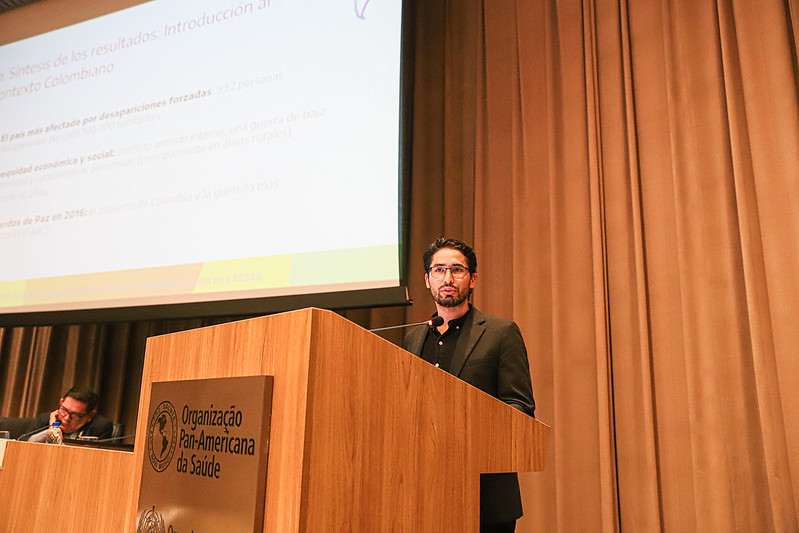The Hub LAC participates in the first Seminar of the ImunizaSUS Project for Evidence-Informed policymaking in Brazil
23 May 2024
The Hub LAC was present at the first Seminar of the ImunizaSUS Project, whose theme was “Evidence-Informed policymaking (EIPM) to support immunization actions in municipalities.”
The event took place on May 17 in Brasília (DF) and was organized by the National Council of Municipal Health Secretariats (CONASEMS) with support from the Ministry of Health of Brazil, the Pan American Health Organization (PAHO), and the Collective Health Education Center of the Faculty of Medicine of the Federal University of Minas Gerais (NESCON/UFMG).
The activity featured speakers from Brazil and other Latin American countries to share their experiences and knowledge regarding the institutionalization of evidence use and the implementation of effective vaccination policies in Brazilian municipalities.
Duber Osorio, coordinator and researcher of the Hub LAC, contributed to the event by sharing the experience in research on the institutionalization of evidence use for decision-making in Colombia. He presented the research results conducted at the Hub LAC and also the results from the RESSA Colombia team.

The seminar aimed to discuss the state of the art of Evidence-Informed policymaking, focusing on two main aspects:
(a) The systematic and transparent use of the best available data and scientific evidence, through the synthesis of the best global and national evidence, presenting the problems related to low vaccination coverage, the possible options to address these problems, and the identification of barriers and facilitators to implement these evidence-informed policies, and
(b) Emphasis on social participation and debate through deliberative dialogues in the situation where the evidence will be used. The situation where the evidence will be used in a context of political, cultural, and institutional constraints, pressure from local anti-vaccine groups, and resource availability.
The event also featured a presentation by Lucy Barrientos Kühn, Project Coordinator of the Evidence Unit of the Ministry of Health of Chile and a member of the Hub LAC directive team. In addition to Lucy, former partners and inspirers for the formation of the Hub were also present, such as Cristián Mansilla, Jorge Barreto, and Ulysses Panisset.
Find out more about the event here.